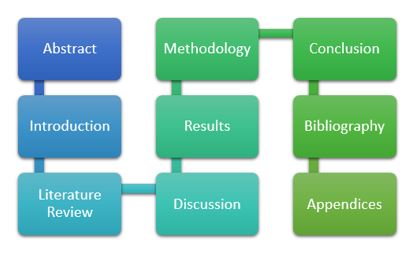The Ultimate Guide To Writing An Undergraduate Thesis
 Erin Jose
16 Sep, 2025
12 mins read
8
Erin Jose
16 Sep, 2025
12 mins read
8

An undergraduate-level thesis is probably the first piece of a formal academic paper that you will be required to write. For a lot of us, this is the longest writing we have had to turn in at university. The prospect of writing a research paper is exciting for many students. You get to explore topics of your liking and are not limited to what your instructors have been teaching you throughout the degree.
From coming up with an idea for writing the actual paper, the entire process is long and requires in-depth research and rigorous proofreading. We all have been there, confused about where exactly we need to start from and what direction to take. If you relate to the anxiety, this guide is for you. In this blog, we will be getting into the nitty-gritty of crafting the perfect thesis. So, let's get started!
What exactly is a Bachelor's thesis?
An undergraduate thesis is a research project or a long-form essay that is mandatory for the completion of the degree. It is an opportunity for students to explore topics and fields of study that interest them. The length and formatting style vary depending on the educational institution's specific requirements.

Thesis writing at the bachelor's level provides an ideal opportunity for students to demonstrate their abilities not only as writers but also as critical thinkers. The process is going to require a significant amount of your time and effort.
You will need to conduct research, analyze information, gather relevant material to support your arguments, and then comprehensively present them. If your schedule is too packed for you to focus on your studies, consult thesis writing services near Glasgow.
Not sure where to start from? Don't fret! Here's a step-by-step breakdown of the process so you stay on track and write a winning paper.
Guide to Writing an Impressive Undergraduate-Level Paper
âž” Choose a Topic of Your Liking
Think about things that you take an interest in and want to investigate further. Choosing a subject matter you find intriguing is going to make the process easier and less anxiety-inducing. Consider two things before you pick a topic and take it to your supervisor for approval:
âž” Relevance: The idea or theme needs to be in line with your area of study.
âž” Feasibility: Make sure the subject matter is something you can work with in the limited time and resources.
âž” Conduct Background Research
Once have chosen a topic, the next step you need to take is to carry out some preliminary research. Identify gaps that exist within the existing literature that your paper will be investigating.

Take detailed notes so you can have a sense of direction while working. This is going to help in making a clearer, convincing argument.
âž” Consult a Supervisor
After deciding on a topic and making sure there is space for further progress in it, you can take your idea to your relevant supervisor. Your supervisor or advisor is going to play a vital role in the whole process.
Your supervisor will be making a significant contribution to the success of the study. There will be many discussions with them about your idea for feedback and assistance. Make sure you consult a scholar who specializes in the field in which you wish to carry out your research.
âž” Develop a Statement
The most important element of your paper is going to be the thesis statement. It needs to effectively summarize the central argument of the work and set the context for the rest of the process.
Your statement is going to give direction to the secondary research and writing, so make it clear and arguable.
âž” Carry Out Secondary Research
The preliminary research you conducted before deciding on your thesis idea is going to come in handy here. It will help you navigate further research and gather the relevant information you require.
This step is a daunting one for many, but without it, one cannot write a good-quality paper. Look into credible sources for this and keep track of the sources of the material you are gathering, since you will be required to cite them later.
âž” Come Up With a Clear Outline

Once you're done gathering relevant information, you can move on to the actual writing part. The first step is to devise a clear, comprehensive plan and structure for the research.
Without prior planning, your approach is going to be directionless and lack cohesiveness. The study is going to be comprised of the following components:
➢ Abstarct
➢ Introduction
➢ Literature Review
➢ Methodology
➢ Results
➢ Discussion
➢ Conclusion
➢ Bibliography
➢ Appendices
âž” Start Writing
Now that you have gathered all the relevant information, come up with a clear plan for the process. After this, you can begin writing. While presenting your arguments, keep your tone formal and academic. Remember that you are writing for grades, not a magazine.

You will need to use both supporting and opposing views about your thesis statement. A prominent quality of well-written theses is their ability to convey ideas in a comprehensible manner. In case you face any issues, reach out to your supervisor or seek help to write PhD thesis, or a bachelor's dissertation.
âž” Revise and Proofread
When you're done with the paper, seek feedback on it to improve the quality. It is easy to overlook mistakes while writing. Academic works require multiple revisions and careful proofreading.

Check the document for any spelling, grammatical mistakes, and inconsistencies. These things might seem minor, but they significantly impact the quality of your work.
Commonly Asked Questions
â— How long should a bachelor's thesis be?
Undergraduate theses are usually 10,000 to 15,000 words. This range can vary depending on the educational institution you are associated with.
â— How to narrow down a topic?
In case you're having issues making your thesis statement more specific, you can seek help from your supervisor. Consider the "what", "where", and "why" to have a clearer sense of direction.
â— What is the difference between a literature review and a methodology?
A literature review involves a critical analysis of the existing work done in a specific field. On the other hand, the methodology serves as the underlying theoretical basis for the paper.
â— How long does the research writing usually take?
Typically, the timeframe required for an undergraduate-level thesis is 3 to 6 months. This can vary depending on the university requirements.
Conclusion
An undergraduate thesis is the most important stepping stone in anyone's academic journey. The writing process doesn't have to be overwhelming. By following these simple steps, you can write an impressive paper that showcases your scholarly abilities.
Make sure to keep your tone academic and stick to the outline you initially made. There will be times when you will feel low on motivation. But remember, the key to good research is to stay consistent with your progress and seek help whenever you feel stuck.
Written By:
Erin Jose



Hotels at your convenience
Now choose your stay according to your preference. From finding a place for your dream destination or a mere weekend getaway to business accommodations or brief stay, we have got you covered. Explore hotels as per your mood.





